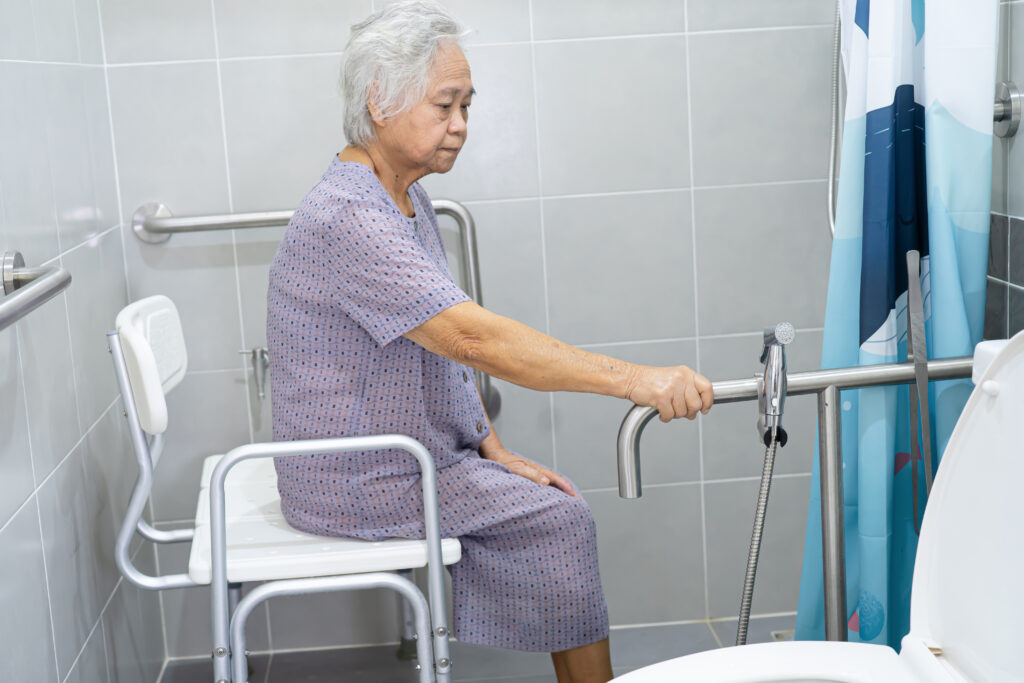Understanding and addressing your aging parents’ needs while aging in place is a crucial step in ensuring their well-being and quality of life. Sometimes simple things can tell us something is wrong. Most of us want to age in place but how do you know when a bit of extra help is necessary to keep them safe? Whether you’re an adult child, caregiver, or senior, recognizing the challenges faced by aging loved ones can help you provide the support they need. Additionally, you’ll discover some of the simple or subtle changes that can tell you there are concerns with managing aging in place.
Key Challenges Faced by Aging Parents in the Home
Aging loved ones wanting to age in place often face a set of challenges that can affect their independence and safety, including:
- Difficulty in Performing Daily Activities: Tasks such as cooking, cleaning, and personal hygiene can become increasingly difficult, leading to a loss of independence.
- Safety Concerns: Reduced mobility increases the risk of falls and other accidents.
- Medication and Healthcare Management: Keeping track of medications and appointments can be overwhelming.
- Social Isolation and Loneliness: Limited mobility can result in fewer social interactions.
- Financial Strain: The costs associated with healthcare and home maintenance can add up quickly.
- Resistance to Accepting Help: Some seniors may be resistant to accept assistance, fearing a loss of independence. In addition, this often leads to difficult conversations. Getting their buy-in and their feeling like they still have decision making abilities will go a long way here.
Solutions to Address These Challenges
Addressing these challenges requires a combination of practical solutions and compassionate understanding. We also have a free checklist for you called “11 Signs Your Aging Loved One May Need Help in the Home.” You can get the download for the PDF HERE.
Improve Accessibility and Safety
- Home Modifications: Install grab bars, non-slip flooring, and good lighting to prevent falls. A good resource to identify safety equipment in the home would be a home health Physical Therapist or Occupational Therapist. You can ask your provider for a referral.
- Daily Routine: Create a schedule that takes into consideration their abilities while encouraging their independence. Do they need help cleaning, running errands, meal preparation, or maybe some help bathing?
- Create a Manageable Daily Routine: Design a routine that matches their capabilities, helping them maintain independence.
Manage Medications and Healthcare
- Technology: Use pill organizers with alarms and wearable emergency call devices such as “Lifeline or Life Alert” to ensure they take their medications on time and can call for help when needed. Be on the lookout for missed doses or pill bottles still with pills in it but past the renewal date. On the other hand, make sure it might just be something simple as they no longer take that medication. If that is the case, it can be disposed of. Many clinics or police departments have a drop off for medications that need to be disposed of.
Combat Social Isolation
- Engage in Activities: Encourage participation in community or senior center activities to foster socialization and mental stimulation. This can be a serious issue with our seniors. Isolation can lead to mental health issues such as depression.
Alleviate Financial Strain
- Financial Planning: Have open discussions about finances and consider working with a financial advisor to plan for healthcare and maintenance costs. Make sure their affairs are in order which may include a visit with their financial planner and or the estate planning attorney. How will they fund their choice of lifestyle during their golden years?
Address Resistance to Help
- Empathy and Involvement: Approach conversations about assistance with empathy and involve them in decision-making to maintain their sense of control. Aging adults fear losing their independence and they know in the future that may be a real possibility as they continue to age. Choosing to age in place comes with much satisfaction for our aging loved ones but it is not without risks.
- Some aging adults will fight for their independence tooth and nail. Have open discussions. Resist telling them what to do and hopefully they will understand the consequences of their choices and want to make a good decision. Unless the healthcare team has deemed them incompetent, they still have the right to make the wrong decisions.

Next Steps After Identifying Needs
Identifying your parents’ needs is just the beginning. The next step is finding the right resources and services to address those needs effectively.
Matching the needs with the appropriate resources will empower your aging loved one to be successful aging in place for as long as safely possible.
Recommended Resources and Services
- Local Home Care Agencies: Provide assistance with daily tasks, medication management, and companionship.
- Independent Patient Advocates Specializing in Senior Care such as Your Nurse Advocate Consulting.
- Technology Solutions: Explore wearable health monitors, medication management apps, and emergency call systems. Medication dispensers with alarms can be a big help to maintain independence.
- Community and Senior Centers: Participate in social activities and support networks.
- Financial Advisors: Assist in planning for healthcare and home maintenance costs.
- Support Groups: Join groups for shared experiences and emotional support.
- Estate Planning Attorney
- Clinic Social Worker
- County Agency for Supportive Services for Seniors. Every County in the U.S. has one. They may have different names. Here in Wisconsin, they are called, “The Aging and Disability Resource Center.”
Call to Action
Start making a difference today. Get your free 11 Signs Your Aging Parent May Need Help in the Home Checklist and begin your journey towards providing the best care and support for your loved ones.
Additionally, by recognizing and addressing the needs of your aging parents, you can ensure they live safely and comfortably in their own home. Remember, finding the right resources is key to overcoming the challenges and enhancing their quality of life.
Thanks for taking time out of your busy day to spend a few minutes with us here today. We have included some important resources for you. We have additional resources listed below.
Take care and we will see you back here soon,
Pam and Linda,
Your Nurse Advocates
“Compassionate care for aging parents with peace of mind for the adult children.”
Resources:
Your Nurse Advocate Consulting Free Resources
Free Course: The ABCs of Senior Care Lingo, Understanding all the Terms.






